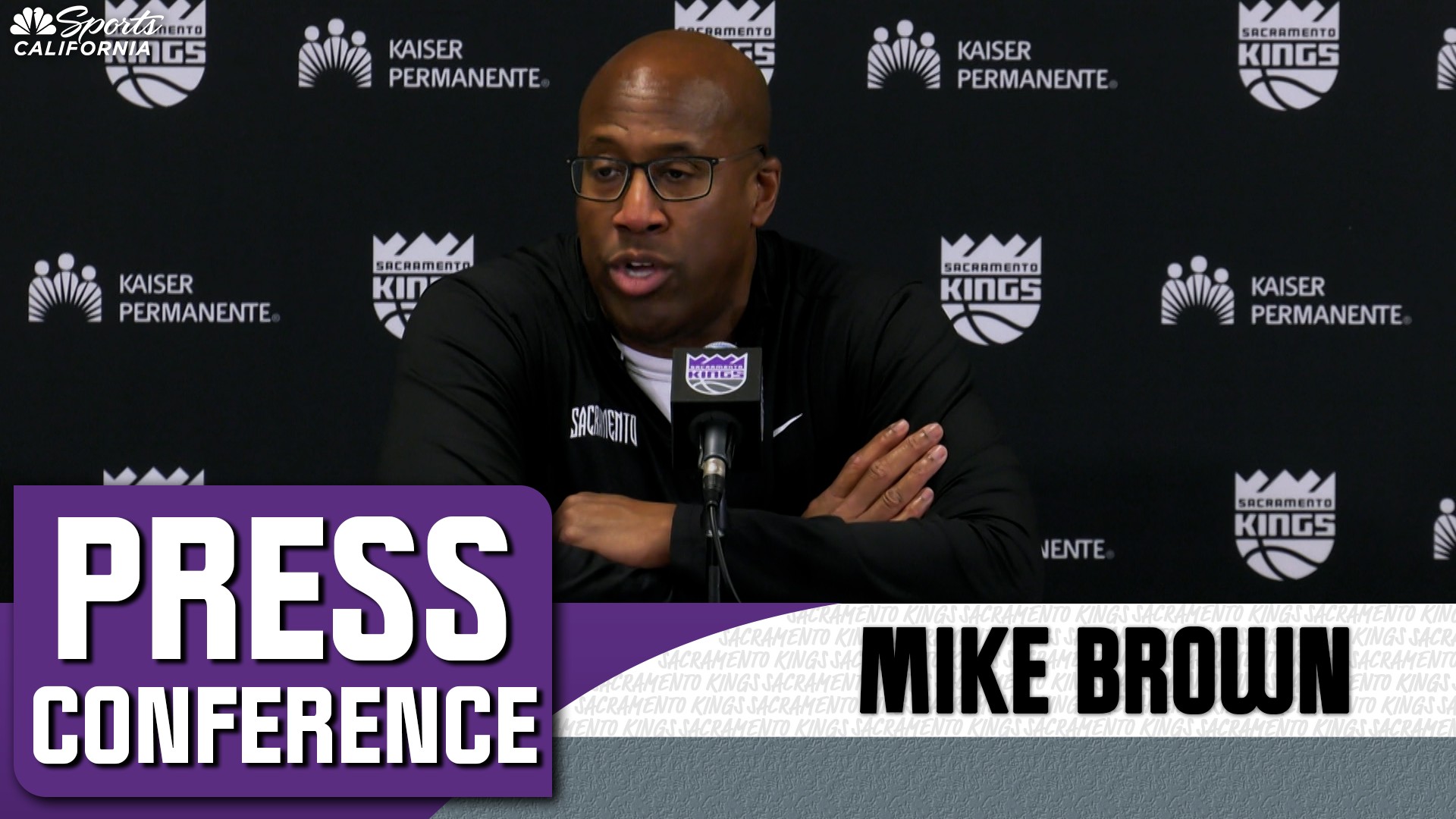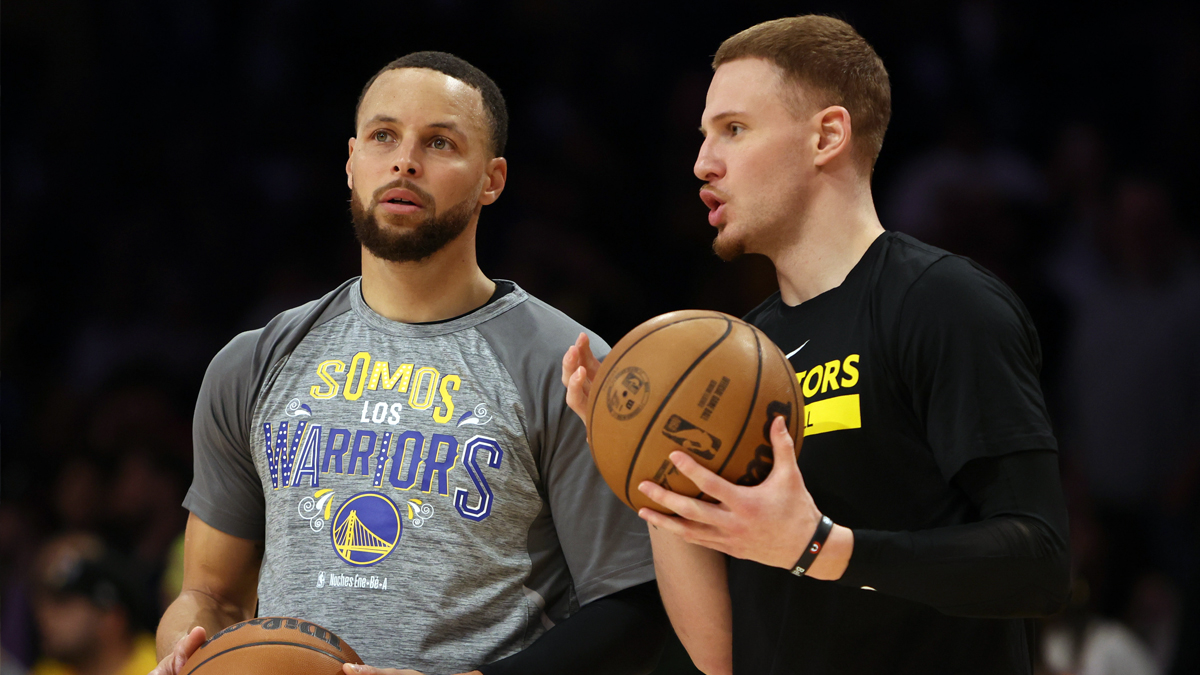NEW ORLEANS – The mountain of momentum the Kings created three nights prior came crashing down Friday at Smoothie King Center in Sacramento’s 105-98 season-ending loss against the New Orleans Pelicans in the second game of the NBA Play-In Tournament.
After falling to the Golden State Warriors in the first round of the NBA playoffs last season, the Kings failed to reach the opening round one year later.
Stay in the game with the latest updates on your beloved Bay Area and California sports teams! Sign up here for our All Access Daily newsletter.
All the offensive juice and defensive prowess the Kings displayed against their budding rivals vanished against the Pelicans. The Kings were outrebounded, crushed in the paint, could not find their 3-point shot and didn’t handle the ball with care.
De’Aaron Fox (35 points, seven rebounds, five assists and three steals) and Domantas Sabonis (23 points, 14 rebounds, seven assists and three steals) combined to score 58 points. The rest of the starting lineup scored 28 points, and the Kings’ bench added 12. Their stars didn’t receive the required help to beat a dangerous Pelicans team.
Here are three takeaways from the Kings’ seven-point loss to the Pelicans.
NBA
Trouble From 3
The Kings continuously emphasized the importance of the 3-point line in their hopes of finally beating the Pelicans this season. New Orleans made the arc its second home playing Sacramento in the regular season, shooting 45.1 percent. The Pelicans averaged 18.3 threes in their final three games against the Kings.
But on Friday night they never needed to make a wave of 3-pointers. Why? Because the Kings went ice-cold and the Pelicans efficiently drained threes at the right time.
Offensively, the flow wasn’t there at all, especially from deep. The Kings only made one of their six 3-point attempts in the first quarter and went into halftime shooting 25 percent (5 of 20) from 3. While the Pelicans made four threes in the first half, they did so on just eight tries.
Though the Kings actually made four more threes than the Pelicans, 11 to seven, the Kings needed 41 attempts to reach that number – shooting 26.8 percent as a team.
Murray’s Rough Night
Keegan Murray was the star the Kings needed to send the Warriors packing Tuesday night at Golden 1 Center. He scored a game-high 32 points on 10-of-20 shooting and was 8 of 13 on threes. That same success didn’t follow him to the Big Easy.
Murray was off from the start and never got going. He missed all four of his shot attempts in the first quarter, and left the first half early at the 2:43 mark after slipping on the hardwood during a turnover that led to a Naji Marshall dunk. Murray was minus-12 in the first half, scoring four points on 1-of-8 shooting and 1 of 6 from long distance.
The second half wasn’t much kinder to him. Murray finished 11 points in 38 minutes on 4-of-12 shooting and was 2 of 7 from 3.
Really, the Kings’ main problem was that Murray and the rest of the Kings’ secondary scorers did not show up. Harrison Barnes scored 17 points on 14 shots. Keon Ellis was held scoreless, missing all five of his shots. Trey Lyles was scoreless in 13 minutes, and Sasha Vezenkov scored 2 points on four shots in 11 minutes.
Not So Free
In the postseason, the margin for error is miniscule. The Kings were reminded the hard way.
And the first quarter should have been a major indication of what was to come. Ball movement disappeared. The Kings had two assists and five turnovers in the first quarter, and nine turnovers to just eight assists in the first half. They did have more assists (21) than turnovers (15) in the end, but the Pelicans answered with 18 points off turnovers
Another area that badly bit the Kings was the free-throw line. Down by nine points at halftime, the Kings had missed four of their 10 free throws. The Pelicans, on the other hand, had made six of seven free throws. Every point counts.
New Orleans made 10 of its 13 free throws. Sacramento missed seven of its 22 free throws for a lowly 68.2 percent.
The Kings were the NBA’s worst free-throw shooting team in the regular season at 74.5 percent, and what’s supposed to be an elementary part of the game was a big reason for their season ending early.


